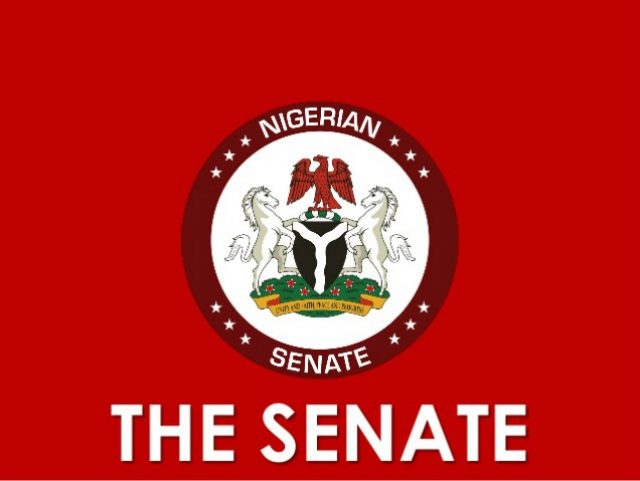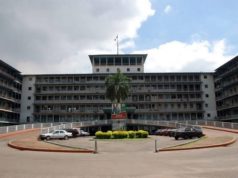In keeping with its promise to fast-track the passage of all relevant laws that will reposition the nation’s oil industry in line with global best practices, the Senate on Thursday, passed to second reading stage three Petroleum Industry Bills (PIB) related Bills.
The three Bills are aimed at providing legal frameworks and other critical aspects of the petroleum industry not captured in the recently passed Petroleum Industry Governance Bill (PIGB).
The Bills which were considered and passed for second reading include the Petroleum Host Community Bill 2017, Petroleum Industry Fiscal Bill 2017 and the Petroleum Industry Administration Bill, 2017.
In his lead debate, the Chairman Senate Committee on Petroleum Resources (Gas), Senator Kabir Marafa, noted that the Petroleum Host Community Bill seeks to provide a legal framework for the host communities in Nigeria.
Marafa said: “This Bill is unique because it recognizes the pitfalls of past efforts and is structured to bring direct funding for the development of the petroleum host communities under the direction and control of the communities themselves.
“This Bill when enacted into law will create the much desired harmony and partnership among the various stakeholders in the petroleum operations process and engender huge cost savings, extensive investments and overall transformation of the Nigeria oil and gas industry,” he said.
Moreover, the Chairman Senate Committee on Petroleum Resources (Upstream), Senator Omotayo Alasoadura, said the primary purpose of the Petroleum Industry Fiscal Bill, is to make for “fully developed fiscally sustainable, safe, secure, environmentally friendly, efficient and integrated petroleum operations for the socio-economic development of Nigeria.”
He added that the Bill further seeks to establish a fiscal framework that will guide the planning and development of petroleum resources in a rational and sustainable manner.
Alasoadura said: “The measurable objectives of this bill shall include but not limited to establish a progressive fiscal framework that encourages substantial and progressive investment in the petroleum industry balancing reward with risk and enhancing revenues to the Federal Government of Nigeria.
“It will institute a forward looking fiscal framework that is based on core principles of clarity, dynamism, open access and fiscal rules of General applications” and (c)
“provide clear distinction between legislative aspects of the fiscal regime and negotiable aspects of contractual obligation,” he said.
On his part, Chairman Senate Committee on Petroleum Resources (Downstream), Senator Bassey Akpan, in his lead debate, said the Petroleum Industry Administration Bill, 2017, seeks to provide for a new legal framework for the administration of the upstream, midstream and downstream sectors of the nation’s petroleum industry.
He said: “The objectives of the bill are to create a robust legal framework for the administration of upstream licenses and leases; provide regulations for the organization of the midstream operations and gas market; and set out the procedures for administration of licencing and operations of the downstream.”
In his remarks, President of the Senate, Dr. Bukola Saraki, noted that the passage of the Bills was in fulfillment of the commitment of the Senate to ensure the swift passage of all PIB related Bills following the passage of the PIGB by the Senate last month.
On the passage of the Fiscal Framework Bill, Saraki said: “the Principle must be a Win-Win for Government and stakeholders. Nigeria’s Petroleum Industry cannot operate in isolation. This is a Bill that will bring in more investments into the country.”
The President of the Senate however committed the three Bills to the relevant committees of the Senate for further legislative work and to report back to plenary in four weeks.
Also, the Senate passed the Bill for an Act to establish the Nigerian Financial Intelligence Agency Bill 2017. The Bill is aimed at making the Nigerian Financial Intelligence Unit (NFIU) autonomous, to pave the way for the nation’s re-admittance into the EGMONT Group, following Nigeria’s suspension earlier this month.
Packaged by Ojo Peter










































































